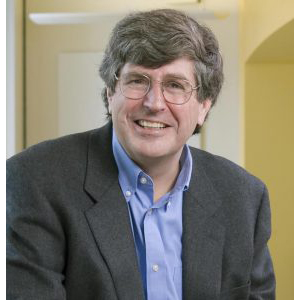2019 Kelly Lectures: Dr. Klavs F. Jensen
| Event Date: | April 16, 2019 |
|---|---|
| Speaker: | Dr. Klavs F. Jensen |
| Speaker Affiliation: | Massachusetts Institute of Technology |
| Time: | 3:00-4:15 pm |
| Location: | FRNY G140 |
| Contact Name: | Davidson School of Chemical Engineering |
| Open To: | Attendance required for PhD students |
| Priority: | No |
| School or Program: | Chemical Engineering |
| College Calendar: | Show |
Dr. Klavs F. Jensen
Warren K. Lewis Professor of Chemical Engineering
Professor of Materials Science and Engineering
Massachusetts Institute of Technology
Professor Klavs F. Jensen will present two lectures as part of the Davidson School of Chemical Engineering Kelly Lectures Series.
Accelerating Development and Intensifying Chemical Processes
Automated optimization and screening of production candidates along with process intensification by continuous operation offer opportunities for faster development and more efficient production of new and diverse products such as pharmaceuticals. This presentation starts with opportunities in the early discovery/development phases enabled by automated screening and optimization of chemical reactions. Next, advances in continuous multistep organic synthesis highlights opportunities for process intensification along with realization of Green Chemistry goals. Examples include on-demand synthesis of common pharmaceuticals, in a plug-and-play, manually reconfigurable, refrigerator-sized manufacturing platform of integrated unit operations. The mentioned advances in laboratory automation and translation to manufacturing accelerate development, but considerable time and effort are also associated with planning chemical synthesis. Computer-aided organic synthesis based on machine learning of millions of reactions in data databases enables integration of retrosynthesis and forward reaction prediction to predict reaction paths to a given molecular target from purchasable starting materials. With expert user input, the synthesis planning outcomes are converted into recipes executed by a modular continuous flow platform that is automatically configured by a robotic arm to setup the required unit operations and execute reactions.
Automated Systems and Machine Learning for Chemical Synthesis
This presentation describes advances in automated reaction optimization, starting with optimization of common chemical transformations in a reconfigurable, continuous-flow chemical synthesis system. Next, the use of microliter-scale droplets is shown to facilitate optimization across continuous variables (e.g., temperature, concentration, residence time) as well as discrete variables (e.g., catalyst species, base, and solvents) without requiring system depressurization or reconfiguration. Computer aided chemical synthesis approaches are introduced based on generalization of historical reaction data by machine learning approaches. Specifically, supervised learning predicts the products of organic reactions given their reactants, reagents, and solvents. Based on training on hundreds of thousands of reactions covering a broad range of reaction types from the patent literature, the neural model makes informed predictions of chemical reactivity. Next, we develop a neural network model to predict chemical reaction conditions, e.g., catalysts, solvents, reagents, and temperatures. By training the neural network model on ~10 million examples from Reaxys, it is learns to propose conditions with a close match to recorded chemical context data. The models are integrated into an overall workflow capable of producing a rank ordered list of reaction paths needed to realize a molecular target from purchasable starting materials. Finally, the potential for autonomous chemical synthesis is discussed in terms of integrating machine learning predictions a robotically configured modular synthesis platforms.
Biography
Klavs F. Jensen is Warren K. Lewis Professor in Chemical Engineering and Materials Science and Engineering at the Massachusetts Institute of Technology. From 2007- July 2015 he was the Head of the Department of Chemical Engineering. He received his MSc in Chemical Engineering from the Technical University of Denmark (DTU) and his Ph.D. in chemical engineering from the University of Wisconsin-Madison. His research interests include on-demand multistep synthesis, methods for automated synthesis, and machine learning techniques for chemical synthesis and interpreting large chemical data sets. He is a co-director of MIT's Pharma AI consortium that aims to bring machine learning technology into pharmaceutical discovery and development. Catalysis, chemical kinetics and transport phenomena are also topics of interest along with development of methods for predicting performance of reactive chemical systems. He is the co-author of more than 430 refereed journal and 175 conference publications as well as 8 edited volumes and 50 US patents. He chairs the Editorial Board for the new Royal Society of Chemistry Journal Reaction Chemistry and Engineering. He serves on advisory boards to universities, companies, professional societies, and governments. He is the recipient of several awards, including a National Science Foundation Presidential Young Investigator Award, a Camille and Henry Dreyfus Foundation Teacher-Scholar Grant, a Guggenheim Fellowship, and the Allan P. Colburn, Charles C.M. Stine, R.H. Wilhelm, W.H. Walker, and Founders Awards of the American Institute of Chemical Engineers. He received the inaugural IUPAC-ThalesNano Prize in Flow Chemistry in 2012 and the inaugural Corning International Prize for Outstanding Work in Continuous Flow Reactors & Chemistry in 2018. Professor Jensen is a member of the US National Academies of Sciences and Engineering as well as the American Academy of Arts and Science. He is a Fellow of the American Association for the Advancement of Science (AAAS), and the American Institute of Chemical Engineers, and the Royal Society of Chemistry.
Learn more about Dr. Klavs F. Jensen at: https://cheme.mit.edu/profile/klavs-f-jensen/

